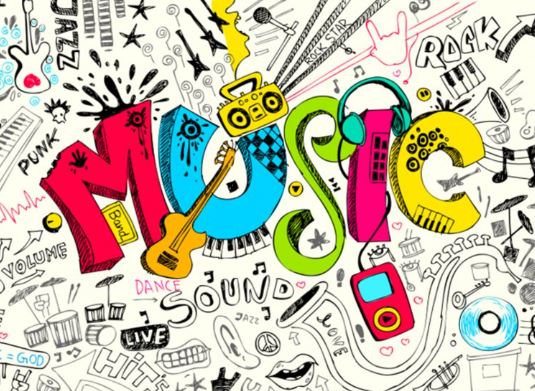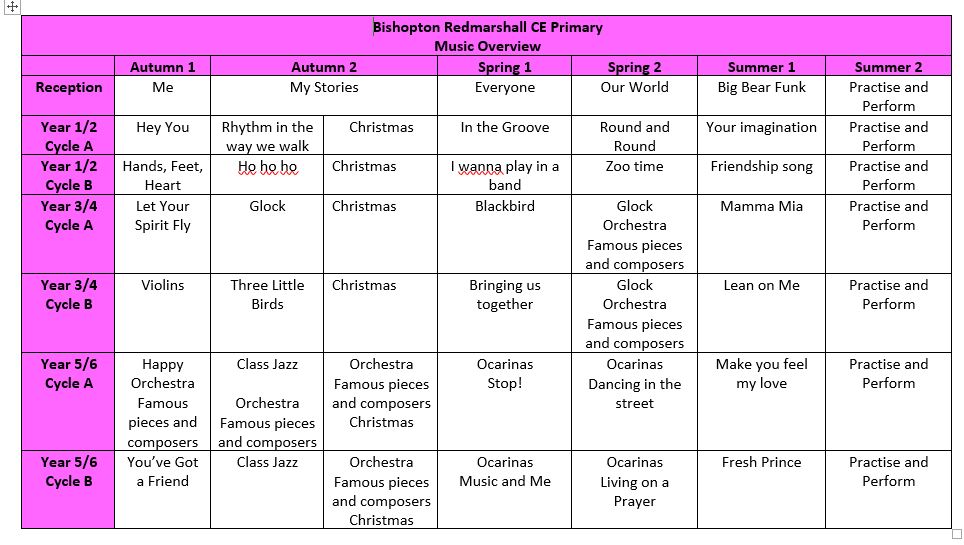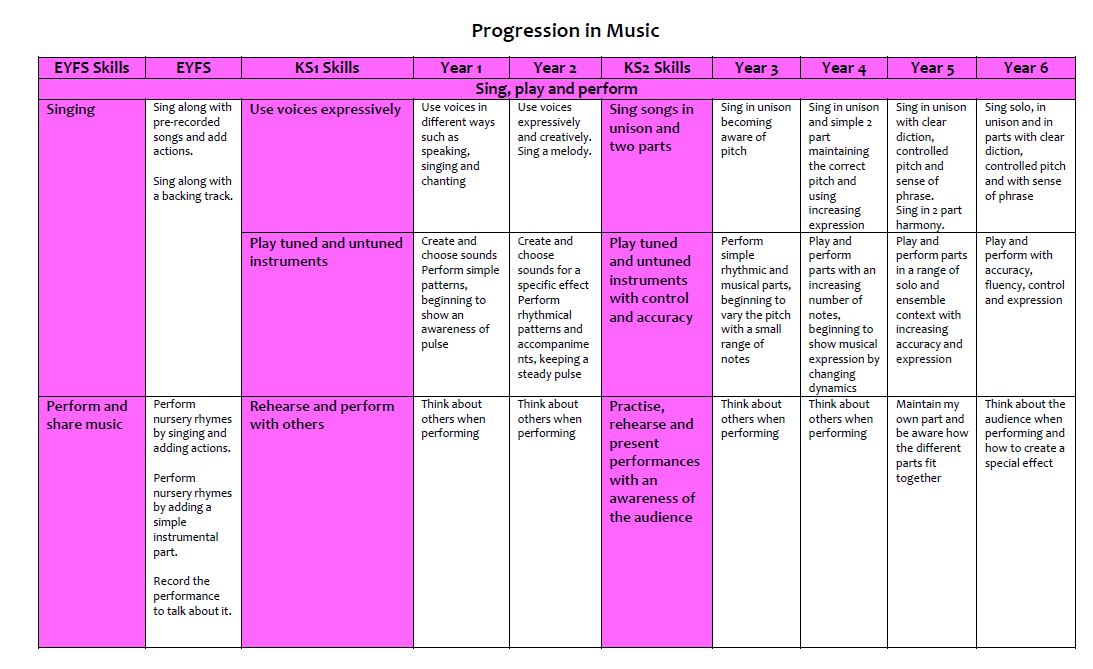Music

Subject Lead: Mr D Williams
Link LAC Member: Mrs S Raine
Music Intent
At Bishopton Redmarshall CE Primary School, our intention is to make music an enjoyable learning experience. Music is a universal language that embodies one of the highest forms of creativity. We want our children to participate in a variety of musical experiences with the aim of increasing their self-confidence, creativity and a sense of achievement.
Our music curriculum will ensure that children experience a rich and diverse range of music. We will focus on developing the children’s ability to understand rhythm and follow a beat, sing songs, learn about the structure and organisation of music, listen to and appreciate different forms of music and also develop descriptive language skills in music lessons when learning about how music can represent different feelings, emotions and narratives.
We intend that our children leave Bishopton Redmarshall CE Primary School equipped with the appropriate knowledge and skills in music that will enable them to continue being creative and confident individuals.
As a Church of England school, one of the greatest gifts we have is to sing God’s praises.
Implementation
Through regular music lessons, all of our pupils will be taught to use their voices expressively and creatively when singing songs, chants and rhymes. They will play a range of tuned and untuned instruments, listen with concentration and understanding to a range of live and recorded music and experiment with, create and select sounds within the dimension of music. They also develop a technical vocabulary such as pitch, beat, rhythm and volume and will be encouraged to discuss music using these terms.
Charanga
Charanga is a scheme of work which offers a topic-based approach to support children’s learning in music. A steady progression plan has been built into Charanga, both within each year and from one year to the next, ensuring consistent musical development. By using Charanga as the basis of a scheme of work, we can ensure that they are fulfilling the aims for musical learning stated in the National Curriculum:
Charanga includes many examples of music styles and genres from different times and places. These are explored through the language of music via active listening, performing and composing activities, which enable understanding of the context and genre.
Charanga provides a classroom-based, participatory and inclusive approach to music learning. Throughout the scheme, children are actively involved in using and developing their singing voices, using body percussion and whole body actions, and learning to handle and play classroom instruments effectively to create and express their own and others’ music. Through a range of whole class, group and individual activities, children have opportunities to explore sounds, listen actively, compose and perform.
We also think it’s important that children have opportunities to learn about significant composers throughout history and some of their well-known works.
All children will have a weekly music lesson. Whole school singing events including Christmas, Easter and Harvest will take place. Children will have access to music workshops from visiting musicians.
Impact
Through coverage and development of the EYFS Framework and NC objectives, children secure both knowledge and understanding.
Children access a wide variety of musical learning experiences and improve their musical skills and knowledge, self-confidence, ability to interact with and show awareness of others as well as providing a scope for self-reflection.
Children will have an understanding of culture and history and will enjoy music in a variety of contexts – as a listener, creator and as a performer.
Music Long Term Overview
Progression Document
Vocabulary Progression
 Bishopton Redmarshall
Bishopton Redmarshall

